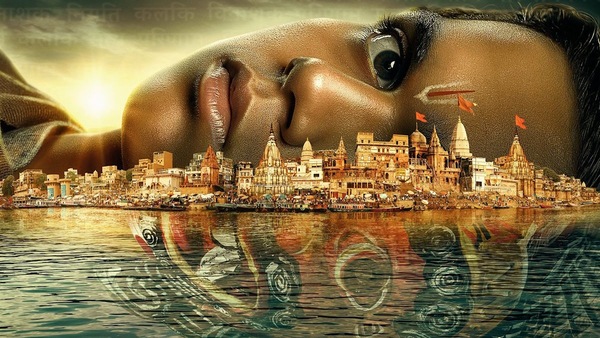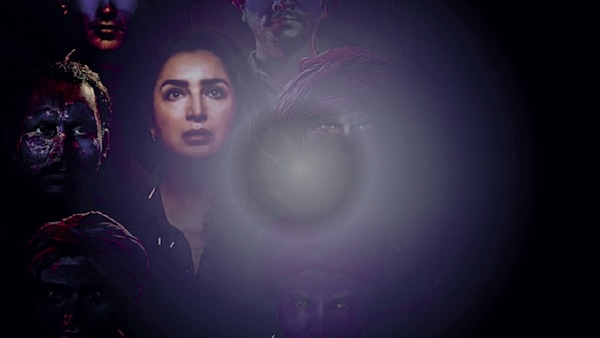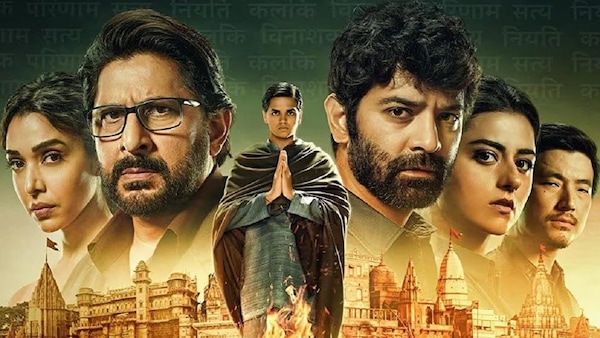Newsletter| How Asur Takes On The Ideas Of Faith & Fantasy In India
Asur is part of a small coterie of Indian streaming shows prepared to bravely go where not many would — mythology, religion and the very idea of what is sacred, and what isn’t. Manik Sharma writes.

Last Updated: 11.23 AM, Jun 07, 2023
This column was originally published as part of our newsletter The Daily Show on June 7, 2023. Subscribe here. (We're awesome about not spamming your inbox!)
***
THE climax of Asur Season 2 posits an ideological battle. On the one side there is science, the study and understanding of things as they are. On the other end there is religion, euphemistically referred to in the show as ‘dharam’ — the belief system that assigns the chaos of life a certain regimen. It’s precisely this regimen that Shubh, the arch nemesis of the series, wants to annihilate.
Withdraw from the people the sense that those above them are looking out for you and anarchy becomes a distinct possibility. Even the political contract of citizenship is a kind of devotion at the end of the day. It decorates and worships the idea of the state, and with it the intent of each law, border and mandate. Asur is part of a small coterie of streaming shows prepared to bravely go where not many would — mythology, religion and the very idea of what is sacred, and what isn’t.
Amazon Prime Video’s The Last Hour, set in the Northeast, followed a tribal shaman Dev (Karma Thakapa), hounded by a demon reincarnate of sorts for the unique power that he possesses: the ability to talk to people before they move on to the other side. It’s a uniquely poetic anchor that opts for the subversive power of reading the unseen. It’s the kind of folk tale that many might have heard of in the hinterlands of India. Superstitions are more than just oral histories. They also represent the nature of this country’s anxieties, fears and prejudices. From caste to class, who we fear and suspect indicates whom we absorb and whom we consider a social outcast. In the show the ability to witness people’s last moments becomes an intimate burden only those privy to the designs of a certain culture can understand. It’s a journey, the outsider — in this case Sanjay Kapoor (playing cop Arup) — gradually makes.

Compared to The Last Hour, Disney+ Hotstar’s Dahan is a peppy, buoyant mix of both worlds. While it builds around the central conceit of an age-old curse that has divided people in a village, it aspires to also root each provocation in the pages of rudimentary science. Every sight, unnatural occurrence is also rationalised. Istead, it’s the fog of mental health and trauma that blurs the lines between the two. Where Dahan succeeds, unlike the other two, is to create intrigue out of sheer paranoia. The mythology here is being made as we watch. In the other two, it’s a question of suspending belief and trusting characters to chauffeur you to a point of lucidity.
The overlap of religion, faith and the supernatural is fairly obvious to the three shows, each coloured by an aspect of violence. In The Last Hour, this violence is a ritual of sorts, a never-ending battle between sides. In Asur, it’s merely the modern version of the perennial battle between good and bad. Shubh (Vishesh Bansal), for example, fantasises about a post-god world where the very absence of that higher power represents a kind of meritocracy. His ideas of crime and punishment, however, are still drawn out of mythology. In Dahan, violence is the fallout of suspicion sowed into the very soil of a civilisation. Science and superstition become two sides of the same coin, inseparable until the last.

Culturally speaking, this unique blend of faith and fantasy is unique to the Indian subcontinent. There is endless literature, more so in the oral format, that one can deduct from the vast expanse filled with customs, fiends and fears — all interchangeable at some point or the other. Asur’s ambitious layout for a nation-defining event considerably pushes the bar on what the genre can aspire to and accomplish. Dahan and The Last Hour were hyperlocal stories, reluctant to canopy beyond their regional motifs. Asur, on the other hand, is easily the most ambitious of the lot, insistent on creating for itself a psychological canvas where it claws at new world ideas like Artificial Intelligence through the vocabulary of our literature. Both science and mythology, it argues, are in essence scriptures, sustained by faith.

Even though Asur qualifies itself as a mythological thriller, it is at the end of the day an ideological debate that takes the gory route from doubt to assertion. A recurring trope in this show is the choice its characters have to make between two tragedies. Between their own and someone else’s. It’s an unsolvable problem, a head-hurting exercise about the very nature of morality. It’s also that evolutionary step in framing faith as a sort of pseudo-science. It seems to work when nothing is on the line. For every other moment it is a contest between the believers and the doubters. Thus far, this canon has predictably leaned in the favour of belief, a casual surrender to the audacity and magical quality of that which cannot be explained. But as Asur and to an extent Dahan have exhibited, there is always more than meets the eye. As long as everyone’s willing to keep their eyes open to the possibility, that is.

 Premium
Premium